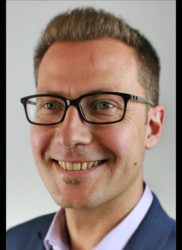Presentation
The Atécopol (“Atelier d’Écologie Politique” in French), as political ecology ateliers, aims to work with and for society on collective actions that allow us to understand socio-ecological challenges and (re)act on them. Created in recent years by French scholars and supported by the French Center for National Scientific Research, they offer an original variation of political ecology in terms of its form (a community of scientists rather than a field of research) and scope (all disciplines, both in matter and life, as well as in human and social sciences).
This conference aims to open the field of political ecology research to the entire academic community and strengthen the articulation of ecology with social questions in the face of the current weakening of democracies. It will focus on better understanding the obstacles hindering actions toward global sustainability and further exploring the levers and alternatives that can help us move away from unsustainable future trajectories. For this purpose, we invite participants to come and “repair the future” and create new alliances among academics and beyond over three days.
With a focus on interdisciplinary dialogue between science and society, we encourage various people or groups to submit proposals: researchers, students, representatives of associations or groups, artists, professionals from the public and private sectors, etc.
The conference will prefer participatory forms of communication that facilitate dialogue and exchanges.

Illustration : ©Yug – @guylebesnerais https://yugbd.blogspot.com/
Main committee
- Alex Ayet (physique de l’atmosphère, GIPSA-lab, CNRS, Grenoble)
- Jean-Baptiste Bahers (géographie, ESO-CNRS, Atécopol de Nantes)
- Christine Bauza (plateformes d’expertise CNRS, MSHS-T, Atécopol Toulouse)
- Sylvia Becerra (sociologie des risques, CNRS, Géode, UT2J, Atécopol Toulouse)
- Anaïs Belchun (paysage, LAREP, ENSP Versailles, Atécopol Toulouse)
- Sylvie Blangy (recherche action participative, CEFE, CNRS, Atécopol Montpellier)
- Mireille Bruyère (économie, CERTOP, UT2J, Atécopol Toulouse)
- Julian Carrey (physique, Laboratoire de Physique et Chimie des Nano-Objets, Atécopol Toulouse)
- Jérémie Cavé (écologie territoriale, IRD, GET-UT3, Atécopol Toulouse)
- Charline Collard (droit des affaires et management de ressources humaines, TBS Education, Atécopol Toulouse)
- Claire Couly (ethnobiologie, living lab, MSH Bretagne, Épolar)
- Christel Cournil (droit public, LASSP, Sciences Po Toulouse, Atécopol Toulouse)
- Pacôme Delva (physique, Sorbonne Université, Reprises de savoirs, Écopolien)
- Emmanuel Ferrand (mathématiques – Sorbonne U, Écopolien)
- Nathalie Fromin (écologie du sol, CEFE, CNRS, Atécopol Montpellier)
- Olivier Gallot-Lavallée (science transdisciplinaire, G2Elab, Univ. Grenoble Alpes, CAMPUS d’après)
- Adeline Grand-Clément (histoire grecque, PLH, UT2J, Atécopol Toulouse)
- Steve Hagimont (histoire contemporaine, Institut d’Etudes Politiques, Atécopol Toulouse)
- Jean-Michel Hupé (écologie politique, FRAMESPA, CNRS, Atécopol Toulouse)
- Odin Marc (géosciences, GET, CNRS, Atécopol Toulouse)
- Stéphanie Mariette (biologie de l’évolution, Biodiversité Gènes et Communautés INRAE, Abécopol)
- Manuel Mercier (neurosciences, Institut de Neurosciences des Systèmes, INSERM, AtécopolAM)
- Françoise Mignon (sciences du langage, UPVD / CRESEM, Cat’Écopol)
- Éléonore Mounoud (sciences de gestion, CentraleSupélec, Université Paris Saclay, Écopolien)
- Thierry Moutin (océanographie, MIO, Aix-Marseille Université, AtécopolAM)
- Marie-Pierre Ramouche (études Hispaniques, UPVD, CRESEM, Cat’Écopol)
- Éric Rémy (sciences de gestion, Université Perpignan Via Domitia, Cat’Écopol)
- Matthieu Romagny (mathématique, IRMAR, Université Rennes 1, Épolar)
- Sébastien Rozeaux (histoire contemporaine, FRAMESPA, UT2J, Atécopol Toulouse)
- Manon Sala (sociologie et sciences de l’éducation, Université Paris Cité, Écopolien)
- Bernard Schéou (économiste, ART-Dev, Université de Perpignan, Cat’Écopol)
- Éric Tannier (biologie, INRIA Lyon, Fabrique des Questions Simples)
- Laure Teulières (histoire contemporaine, FRAMESPA, UT2J, Atécopol Toulouse)
- Jean-Louis Tornatore (anthropologie, LIR3S, Université de Bourgogne, Penser les Transitions)
- Aline Vernier (physique, LOA, Ecole Polytechnique, Écopolien).
Scientific committee
- Geneviève Azam, maîtresse de conférences en économie, Université Toulouse – Jean Jaurès
- Bernadette Bensaude-Vincent, philosophe, professeure émérite, Université Paris 1 Panthéon-Sorbonne
- Christophe Bonneuil, historien des sciences, Centre Alexandre Koyré, EHESS, MNH, CNRS
- Olivier Brossard, professeur de sciences économiques, LEREPS, Sciences Po Toulouse
- Christophe Cassou, climatologue, directeur de recherche au CNRS, Cerfacs, Université Toulouse III – Paul Sabatier
- Wolfgang Cramer, écologue, directeur de recherche au CNRS, Institut Méditerranéen de Biodiversité et d’Écologie marine et continentale (IMBE)
- Catherine Jeandel, océanologue, directrice de recherche au CNRS, Laboratoire d’études en géophysique et océanographie spatiales (LEGOS), OMP, Université Toulouse III – Paul Sabatier
- Agnès Labrousse, maîtresse de conférences en économie, Université de Picardie, CRIISEA et associée au CEMI-EHESS
- Emmanuel Prados, chercheur INRIA, responsable de l’équipe de recherche Soutenabilité, Transition, Environnement, Économie biophysique et Politiques locales (STEEP), INRIA Grenoble Rhône-Alpes et Laboratoire Jean Kuntzmann

